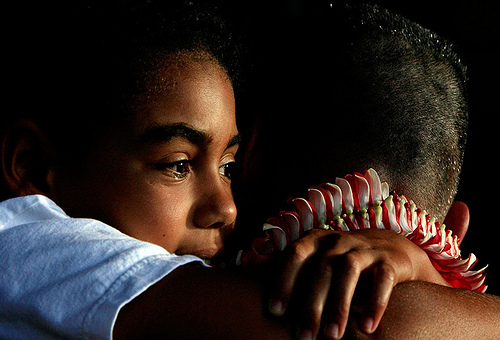Forgiveness is how we put a stop to anger, ill-will and a desire for revenge. – Dalai Lama
What does that mean?
This quote, as you might imagine is about forgiveness and the power that one simple act has to change our lives, and to change the lives of others.
The quote mentions just a few of the less-helpful states of mind which it can help us overcome. How many others have you quelled with a little bit of forgiveness?
With our use of forgiveness, we can better manage not only the states of mind and emotions listed in the quote, but all those which derive from them. The feeling of hurt isn’t listed, but it often comes from anger.
In short, forgiveness is an emotional reset button. When you can forgive, you can help drain the emotional swamp of the anger, the feelings of ill-will and the desire for revenge. I believe that makes it worth the effort.
Why is true and deep forgiveness important?
Consider the first example mentioned in the quote, the feeling of anger. Can you still be angry if you have truly forgiven someone? Conversely, if you still feel anger towards them, have you truly forgiven them, or did you just go through the motions?
Yes, it can be hard to say the word ‘forgiveness’ sometimes. It is often much harder still to actually forgive them in your heart. To me, that is the difference between the statement of forgiveness and a true and deep forgiveness. One allows them feel better, the other allows you to feel better.
Note that this does not mean you necessarily trust them again. I have forgiven many people for things they have done, but because I believe they are still willing and able to do these things again, I am cautious around them. I’m not angry with them for being human or weak, but I am careful around them, because they still are.
When you can give a true and deep forgiveness to someone, your focus should be on yourself as much as on them. Do you deserve to suffer from holding that anger, that ill-will or that desire for revenge within your heart? I hope not. Forgive them, for your sake. At least forgive their weakness, if not their deed.
Where can I apply this in my life?
To me, the purpose of forgiveness is to clear the negative emotions from your heart. Therefore, I would apply this quote, and forgiveness, to anyone towards whom I feel angry, to anyone to whom I feel any ill-will, or to anyone towards whom I feel a desire for revenge. And that’s as a starter.
The forgiveness of others, when it becomes a habit, is truly a liberating thing. No longer do you feel obligated to be angry for a certain minimum amount of time before you forgive someone. No longer do you feel obligated to make yourself miserable for a time before you can feel better.
Take a moment and think of times when you forgave someone, and how it felt. Consider three points in time; before you decided to forgive them, after you decided to forgive them, and then after you told them. How did you feel in each of those three times? How did they feel in each of those three times? How did you interact with them in each of those three times?
Which of those three times were the best for you? What about for the other person? And for those who had to be around the two of you? Is that yet another reason to forgive someone, for how it impacts others not directly involved in your issue? I think it is, do you?
Take a moment and consider which of the events you thought about would be best for you to forgive? It might be the one which you think will be the easiest for you to do. It might be the one you think will have the most impact on others. It might be the one you feel will remove the most anger, ill-will, or desire for revenge.
With that in mind, how will you go about doing this? Can you find the person to tell them directly, or will you have to be satisfied with simply forgiving them within yourself and your heart? When would be a good time to do it? Where would be a good time to do it (publicly, or privately, etc)? Now all you have to do is to actually forgive them, right?
There is a saying that time will heal, and reduce anger. Yes, you can wait for time to erode your anger, and then forgive them. Or you can consider working at it from the other direction, and forgive them, and allow the forgiveness to reduce the anger. If you will forgive them five years from now, why carry that anger for five years? Clear it out, forgive them today.
Don’t allow your heart become a septic tank of negative emotions. Even if you are having trouble forgiving them for what they did, at least try to forgive them for being weak, for giving in to temptation, for being human. If you can get that far, you can drain some of the negative from your life.
Besides, if you forgive them, they might actually be able to forgive themselves. And then they can begin to heal as well.
From: Twitter, @DalaiLama
confirmed at : it’s his own feed…
Photo by scem.info
Related articles
- Properly using Forgiveness (life-rediscovered.com)
- The Freedom of Forgiveness. ~ Marc D. Baldwin (elephantjournal.com)
- Forgiveness (einsteinsgifts.com)
- The Freedom of Forgiveness (leaplikeafrog.com)
- Forgiveness (theadoptivemomblog.wordpress.com)


Pingback: Use your human intelligence in the best way you can; transform your emotions in a positive way. | philosiblog
Pingback: Wake up Call | The Velvet Closet of a Lesbian
Thank you. Well said. Peace, Karen
Thanks for stopping by, reading, and commenting. Glad you liked it.